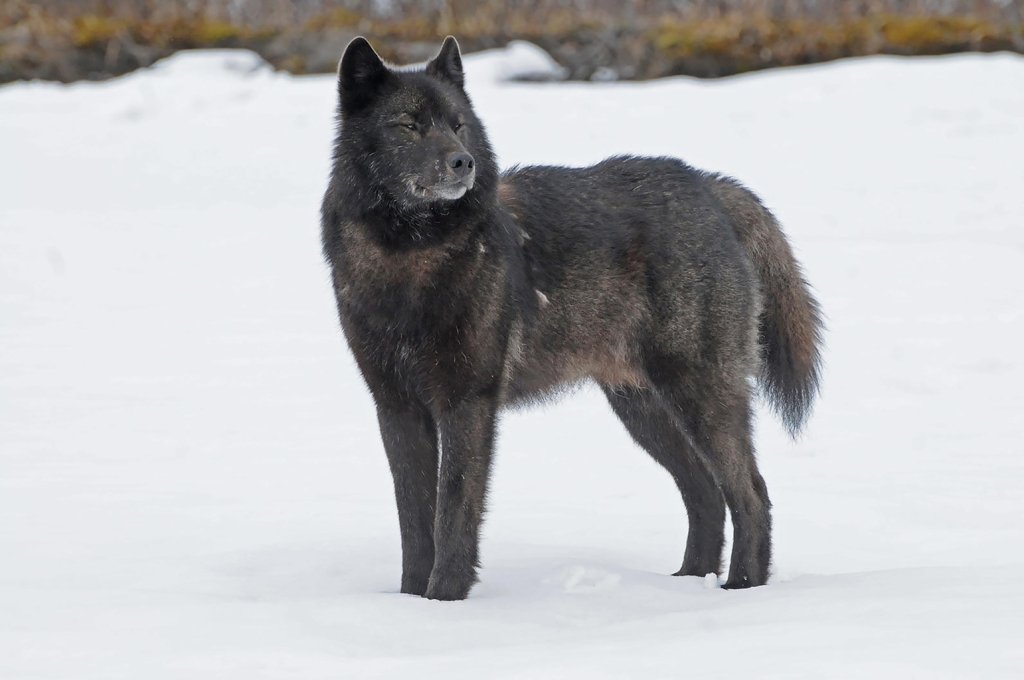
SHI LECTURE TO HIGHLIGHT INDIGENOUS KNOWLEDGE OF SOUTHEAST ALASKAN WOLVES
Speaker to explore the significance of wolves in Indigenous cultures, role in the ecosystem
Sept. 6, 2024
Sealaska Heritage Institute (SHI) will sponsor a lecture next week as part of its ongoing fall series that highlights prominent voices in Indigenous knowledge, wildlife conservation and science.
The second talk in the series will focus on the rich and complex Indigenous knowledge of Southeast Alaskan wolves, presented by Dr. Stephen J. Langdon, a professor emeritus of anthropology at the University of Alaska Anchorage and SHI research fellow.
The presentation, “Indigenous Southeast Alaskan Wolf Knowledge—Observational and Interactive Knowledge Provided by Indigenous Experts and Its Significance,” will cover the relationship between wolves and Indigenous communities across Southeast Alaska. Dr. Langdon will share findings from rapid assessment research on Indigenous knowledge conducted through SHI at the request of the U.S. Fish and Wildlife Service (USFWS).
Drawing from interviews with Indigenous experts spanning Yakutat to Metlakatla, Dr. Langdon will explore the wolves’ cultural importance and the observational and interactive knowledge gained through diverse engagements, such as hunting, trapping and wilderness treks. The lecture will also highlight the relationships between wolves, prey and their environment, with a focus on the principle of balance, which seeks conditions beneficial to all participants in the ecosystem.
Findings from this research were incorporated into a 2023 species status assessment under the Endangered Species Act, influencing the USFWS’s decision not to list the Alexander Archipelago wolf as endangered.
The research was groundbreaking in that a federal agency turned to Native people to incorporate Indigenous knowledge into the study. The department reached out to SHI to collaborate on the project based on its record of research in Southeast Alaska. Through SHI, Dr. Langdon conducted interviews with expert wolf hunters and trappers in Craig, Haines, Hydaburg, Kake, Ketchikan, Klawock, Klukwan and Yakutat.
After weighing both Western science and Indigenous knowledge, the agency found that the listing of the Alexander Archipelago wolf under the Endangered Species Act was not warranted.
“As Native people who have been on this land for more than 10,000 years, we are happy to see scientists tapping Indigenous knowledge in an effort to better understand our homeland,” said SHI President Rosita Worl.
Dr. Langdon’s talk is the first of two lectures on this project. Dr. Jeffery Brooks, who co-authored the final report along with the Indigenous knowledge experts, will speak on the topic on Thursday, Sept. 12.
The lecture is scheduled at noon, Tuesday, Sept. 10, in Shuká Hít within the Walter Soboleff Building, 105 Heritage Way, in Juneau. The event will be livestreamed and posted on SHI’s YouTube channel.
Sealaska Heritage Institute is a private nonprofit founded in 1980 to perpetuate and enhance Tlingit, Haida and Tsimshian cultures of Southeast Alaska. Its goal is to promote cultural diversity and cross-cultural understanding through public services and events. SHI also conducts scientific and public policy research that promotes Alaska Native arts, cultures, history and education statewide. The institute is governed by a Board of Trustees and guided by a Council of Traditional Scholars, a Native Artist Committee and a Southeast Regional Language Committee.
CONTACT: Kathy Dye, SHI Media and Publications Deputy Director, 907.321.4636, kathy.dye@sealaska.com.
Caption: An Alexander Archipelago wolf. Note: Media outlets are permitted to use this image for coverage of this story. For a higher-res image, contact kathy.dye@sealaska.com.